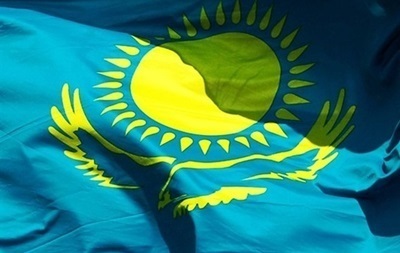 After reading my earlier posts about privatization opportunities in Kazakhstan and the deterrent effect of the FCPA on American investment in that country, and Kazakh listings in the U.S., a reader asked whether it is difficult to do business in Kazakhstan in an FCPA-compliant manner. Unfortunately, I have to say, yes, sometimes."
After reading my earlier posts about privatization opportunities in Kazakhstan and the deterrent effect of the FCPA on American investment in that country, and Kazakh listings in the U.S., a reader asked whether it is difficult to do business in Kazakhstan in an FCPA-compliant manner. Unfortunately, I have to say, yes, sometimes."
Kazakhstan is an emerging market, which was a Soviet republic only a generation ago. It’s now a middle-income country, whose prosperity largely depends on its natural resource bounty.
The ownership of some of its top companies derives from the shady post-Soviet nomenklatura privatization, when many of the country’s prize industrial assets were taken over by ex-Soviet apparatchiks. At the same time, Kazakhstan’s tremendous growth over the past two decades has created many successful private businesses and the country’s openness to foreign investment created substantial opportunities for foreign companies bringing the necessary skills and investments into the country.
Kazakhstan’s long-serving president, Nursultan Nazarbayev, is ambitious and has been trying to reform the economy over the past two decades. Economic reform coupled with high oil and mineral prices for much of the past 15 years have brought tremendous wealth to the country, along with rapid growth of its international standing and increased prosperity for its citizens.
While much of Kazakhstan’s prosperity is now slipping away with the current oil price collapse and the massive devaluation of the national currency, the tenge, Kazakhstan has traditionally been seen by many as having the best investment climate in the post-Soviet Commonwealth of Independence States, being second only to Russia in its ability to attract foreign investment. The country was so confident about its future a few years ago that it even proclaimed its desire to join the OECD and to become a top 30 economy by 2050.
Kazakhstan’s attempts at reform have received appropriate recognition from the U.S. government and various international institutions. As noted by the U.S. State Department’s Kazakhstan Investment Climate Statement 2015,
Kazakhstan has made significant progress towards creating a market economy since it gained independence in 1991, and has achieved considerable results in its efforts to attract foreign investment. ... [It] has steadily improved its business environment, ...streamlined some bureaucratic practices, provided accelerated business start-up procedures, reduced minimum capital requirements for businesses, and simplified the procedures for registering property and paying taxes.
The Kazakh government established various top-level institutions for maintaining a dialogue with foreign investors, including the Foreign Investors’ Council under the president, and has aimed to address investors’ concerns and attract additional foreign investment into the country.
How does the business climate in Kazakhstan compare with other countries?
According to the most recent World Economic Forum’s Global Competitiveness Report, Kazakhstan is ranked 42 out of 140 examined economies, a 30-place gain over the past five years. On the World Bank’s Doing Business Index, which measures red tape and other business hindrances, Kazakhstan ranked 41 out of some 189 countries and territories , a 12-point improvement from the prior year.
Respectable rankings in international competitiveness reports are only half of the story. Kazakhstan currently ranks 126 on Transparency International’s Corruption Perceptions Index. In 2013, its CPI rank was 140 but only a few years ago in 2010, it ranked 105.
In plain language, then, Kazakhstan’s anti-corruption efforts have floundered, making it difficult if not impossible for the country to reach its goals of joining the elite grouping of the OECD member states and become a top 30 economy by 2050.
What does being 126 on the CPI mean in practice? In the next post, I'll examine some of the downside of doing business in Kazakhstan from the U.S. government’s perspective.
_____
Alex Nisengolts is a Chicago attorney focusing on cross-border M&A, electronic discovery, and investments and operations in Kazakhstan. He first traveled to Kazakhstan in 1994 as a legal advisor on a USAID-sponsored legal reform project and has been involved in Kazakh matters for the past two decades, for U.S. and Kazakh law firms and as a manager and senior manager for a Big Four international accounting firm.
www.fcpablog.com, 14.01.2016




